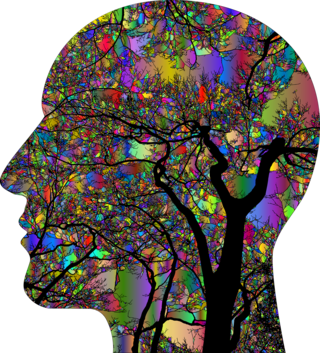by Scott McGreal: Psychedelic drug users seem to be less prone to obesity, but it’s unclear why…
Although once demonized, psychedelic drugs have begun receiving increasing scientific attention for their potentially beneficial effects. For example, surveys have found that lifetime use of psychedelic drugs was associated with reduced psychological distress and suicidality (Hendricks et al., 2015), lower odds of criminal behavior (Hendricks et al., 2017), and decreased risk of opioid abuse and dependence (Pisano et al., 2017). Additionally, research on drug harms has indicated that psychedelic drug use is associated with a low risk of harm to self and others (Nutt et al., 2010).
Most of this research has focused on mental but not physical health. Hence, a recent study (Simonsson et al., 2021) aimed to fill this gap by examining if lifetime classic psychedelic use is associated with certain markers of physical health in a large survey in the United States. The study did find beneficial associations between some markers of physical health and psychedelic drug use, although the reasons for this, and the direction of causality, remain uncertain.

In their study, Simonsson et al. used data from the National Survey on Drug Use and Health, an annual survey that aims to assess the prevalence of substance use and mental health issues in the United States. Specifically, they examined responses from 171,766 adults collected between 2015 and 2018. The markers of physical health considered in the survey were self-rated overall health, body mass index (which they used to categorize respondents in various weight categories), and a heart condition and/or cancer in the last 12 months.
Additionally, the survey collected data on respondents’ age, sex, ethnicity, education, income, other drug use, and many other factors that could affect the results. This is important because people who have used psychedelic drugs are more likely to be male, younger, white, and so on, so all of these factors were controlled for in the analyses.
The Findings on Psychedelic Use and Health
The researchers found that, after controlling for the other factors, lifetime psychedelic use (i.e., having used any classic psychedelic, including LSD, psilocybin, mescaline or peyote, and ayahuasca, at least once in one’s life) was modestly but significantly associated with better self-rated health.
Additionally, lifetime psychedelic use was significantly and more strongly associated with reduced odds of being classified as overweight or obese. Specifically, the categories used were overweight, obesity class 1, obesity class 2, and extreme obesity class 3, and people who had ever used psychedelics were significantly less likely to be in any of these categories. On the other hand, there was no association between being underweight and psychedelic drug use. There were no significant associations between psychedelic drug use and having either a heart condition or cancer in the last 12 months.
As this was a survey study that did not contain data on long-term trends, it is not possible to determine from the data how lifetime psychedelic use is causally related to physical health—that is, we do not know whether psychedelic use plays a role in promoting better self-rated health and reducing the risk of obesity, or whether healthy people who are not obese are more likely to ever use psychedelic drugs. Additionally, it is possible that the association between them is related to some third factor that causes both. Nevertheless, it is interesting to speculate, and the authors of the study do propose a number of fascinating suggestions.
What Explains the Links Between Psychedelics and Health?
Transcendent experiences that occur under the influence of classic psychedelics have been known to result in lasting experiences of improved mental well-being (Griffiths et al., 2006). Simonsson et al. speculate that such effects might affect physical health indirectly, perhaps through producing long-term changes in health behavior and increased mindfulness and purpose in life. They also cite research suggesting that psychedelic drugs may have immunomodulatory and anti-inflammatory effects that could be beneficial for health.
This could be relevant because a survey in Germany using a nationally representative sample of over 18,000 people found that several personality traits, including higher openness to experience, were associated with a reduced likelihood of obesity (Bagnjuk et al., 2019). Why this was the case was not explained, although it is conceivable that people high in openness to experience are more mindful of how they eat (this would need to be confirmed by further research, though). Based on this, it could be that the association between lifetime psychedelic use and reduced risk of obesity found by Simonsson et al. is related to higher openness to experience in these people acting as a protective factor. Whether this is the case would, of course, need to be tested with additional studies, but I find the idea intriguing.



















































